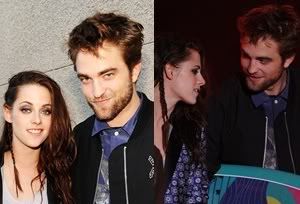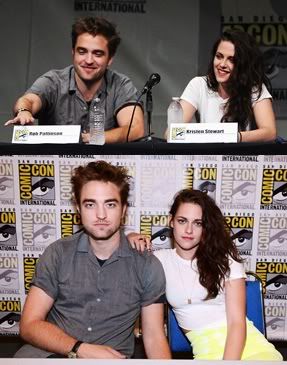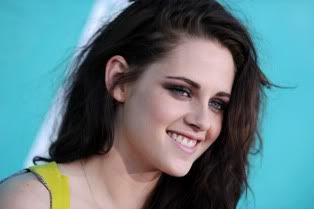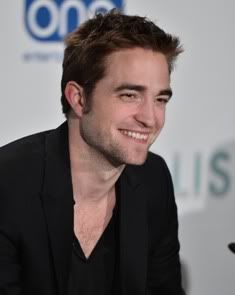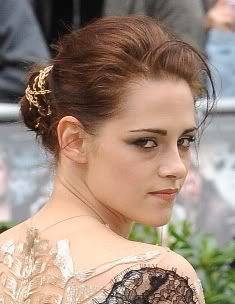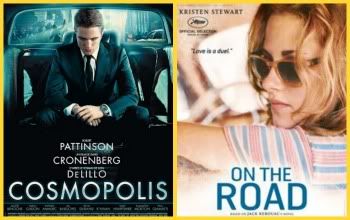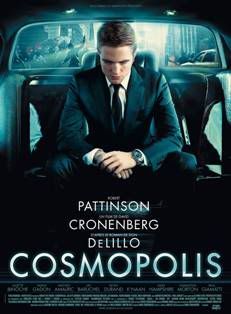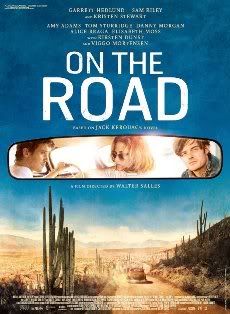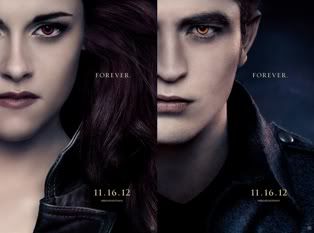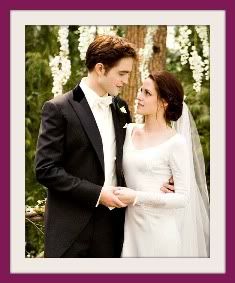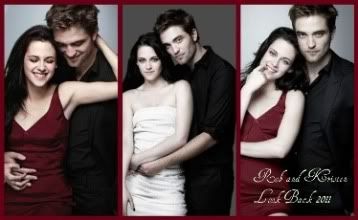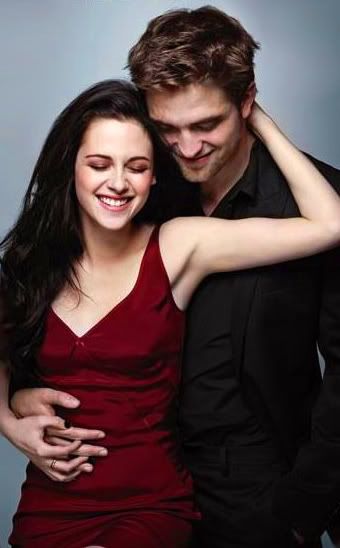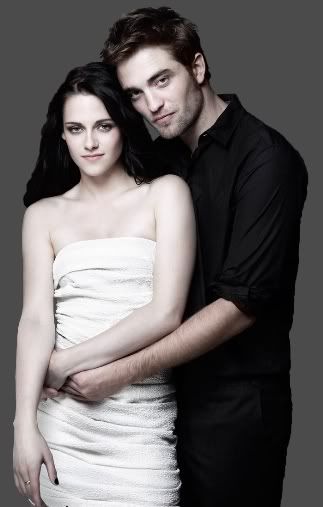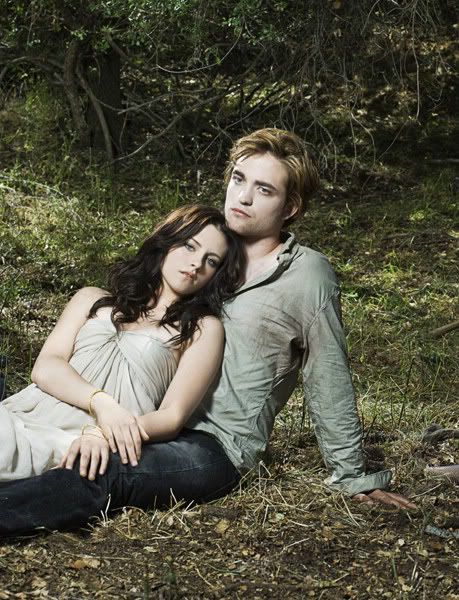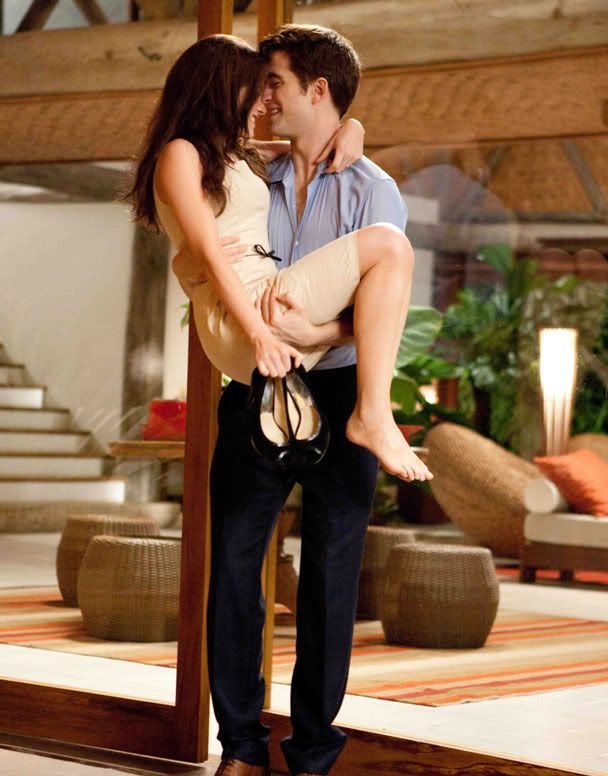
Preview of this interview was posted October 11th
Box OfficeMagzine It’s the beginning of the end for Bella Swan, but for the actress who plays her, it’s the end of the first major milestone in her career. Just 21, Kristen Stewart has spent the last three years of her life being one of the most famous faces in the world. The Twilight Saga can’t be avoided—it’s released a film a year since 2008 and made tabloid staples (for better or worse) out of stars Stewart, Robert Pattinson and Taylor Lautner. For a young actress whose first love is the craft, not the celebrity, it’s been intense. But as Kristen Stewart tells Boxoffice, she’s so fused with the role of Bella Swan, she’s invented whole pages of Bella’s history that she swore were in the original books—until she looked it up and realized she’d just imagined those memories. So since she knows Bella better than anybody—maybe even better than Stephenie Meyer—we ask if she really thinks Bella is ready for marriage? And after so many years on the set, what was it like waking up knowing she’d never play Bella again?
What’s it like working on a film where people are so fascinated by the tiny details? However you and your hair designer decide to style your hair for the wedding, thousands of girls are going to copy it for their own wedding or prom.
It’s funny. It’s something you have to put out of your mind while you’re working, or else it’s incredibly heavy, it weighs you down. You want to do something that is clear to you. But at the same time, it makes it exciting, like, “I hope they like it!” I’m also on their level: I’m just as worried about how the hair is going to look. It’s just not normal for other people to be as concerned about something that you’re concerned about on the movie. Usually, people don’t know, people don’t care. It’s unique, really unique in that way. I’ve never experienced that on another project.
Knowing that other people take your role as seriously as you do—it’s kind of a great confluence of actor and audience.
Yeah. It really is pretty amazing, and it’s so different. I’ve had a taste of it in a couple movies, but this case was the most extreme. Playing real people, you get a similar experience. With Joan Jett [in The Runaways] and then and then On the Road, where I play this woman who’s absolutely f–king incredible, LuAnne Henderson [who inspired the character of Marylou in the novel and film]. That was so important on a level that had nothing to do with me. So it’s a similar experience. Usually, I own these parts—they’re mine and the director’s and the writer’s. But this has relevance on another level in the real world.
That’s true. Especially with On the Road, Marylou is based on a real person but she’s also existed in the minds of readers for six decades. And you’ve got the pressure to make them all happy with your take on that character. Were there moments during Twilight where you were wondering how much you could make the character your own?
Having read the books and sitting down with everyone involved, it’s so funny. People don’t love the same things you love all the time. And some things I would remember from the book never existed. It was odd. Like, that something had happened to Bella between films and I would fight tooth and nail for it, but it wasn’t there. I had made it up. It was something I had imagined from between the times that are there. Which is a strange experience, especially when you’re arguing with the director. Then I’d go back and read chapter 23 and it wasn’t there. It was so weird. But different things are important to different people and you’ve got to choose. And that’s what makes the job cool, that’s what makes the movie ours. It’s a strange thing. It’s owned by so many people at this point—it has such a huge past and we’ve had so many directors. I must sound totally corny and weird, but it’s loved by an insanely diverse and large group of people.
We’ve culled pictures of Twilight fans posing with their favorite piece of memorabilia, or posing next to paintings they’ve made—sometimes even whole wall murals in their own house. I love their enthusiasm.
So do I. I always feel this intensely about things I work on, but to suddenly look up and see that other people do as well, there’s nothing more to say other than that it feels good. It’s nice to share that. On an energy level, that’s going to fuel you. It feels cool.
You mentioned all the directors you’ve been through. That makes you and Robert Pattinson and Taylor Lautner the old guard—you know the characters and this world so well. What do you tell the directors when they start?
Everyone was so different, it always felt fresh. As much as going back and working with Rob and Taylor and the rest of the cast and everyone else who’d been there the whole time was like picking up where we left off, at the same time we were pretty accepting of the fact that we were going to have different directors on every one. The director, you follow him. He sets the tone 100 percent. I love that. Feeling lost is not a cool thing and I rely heavily on directors. It’s the nature of doing the job—I don’t dictate, he does. Everyone genuinely had different ideas—not even different ideas, they were moved by very different things. The things that got them off about the project were all very, very different. That was interesting to see.
How did Bill Condon fit in? What made him different?
He had this very unobtrusive gentleness. He’s incredibly sweet. It’s funny, now I’m describing him as a character, but he accepts things that are simple, and I feel the same way. Somehow, the romance is easier to accept in this movie. Things started to feel genuine again, things started to feel real again, because he believed in them so much. And that’s pretty awesome considering the point in the series that this movie is at. I think that Bill is really collaborative and awesome, and I think that he really was able to get that Edward and Bella are united now and they really do feel, at least to me—or they’re working on becoming-whatever the f–k it means to be “adult.” And it’s nice not to see them scrambling around and not knowing what the f–k they’re doing. They’re incredibly steadfast at this point, and I feel like I believe it mostly because of Bill. For whatever reason, it’s hard to make these movies and I like how this one turned out, I really do.
Which makes sense because this is the book where things really get real: they make permanent decisions. Do you think Bella understands what marriage means at 18 years old?
Marriage means something so different to everyone. I think that’s just another step for her. I think it’s an interesting story point that marriage has no regard for her—she’s doing it for him. I get asked constantly whether I think she’s a strong character, whether I think she’s subject completely to this man and is a mindless follower. I think it takes a really ballsy person—and someone who really knows themselves—to be able to give it up and know that it’s worth it and know that the person they’re doing it with is on the same level. I just don’t really understand why people approach it from that way. Imagine if they were both girls or both guys, I think that Edward would probably be criticized just as much. They’re both kind of lost and crazy and stupid in the beginning, and in the end they really have f–king committed to each other. They both give things up and lose things. And I don’t understand why it’s criticized. Maybe because I’ve played the part and worked through it in my head in every way, but I don’t get it.
People look at Romeo and Juliet as this infatuation story between two stupid kids, but if they had lived longer, they might have been able to prove themselves.
Yeah. That was totally circumstantial. You look back on it and go, “No! Why the f–k did that have to happen?” Luckily, Edward and Bella are just a little bit more lucky.
I’m projecting some of my own fears onto this, but the idea of playing a character who is pregnant with something literally otherworldly that’s dominating her from within sounds totally terrifying. Especially having never been pregnant yourself.
What was strange was that was my every inclination playing the scenes, what the first rehearsal would always end up being. But ultimately, it became one of my favorite things to play: this pregnant, feral cat in the corner of a room who’s just like, “Stay the f–k away from me!” All that matters is what is inside, and that is awesome. But it took a little bit to get inside and on that page in a real way. It’s funny, you look down and your instinct is to be like, “Ugh!” But you can’t do that. It hurts, but it’s something that you’re willing to take. And it’s f–king weird. It really was like an alien baby pregnancy. It was so weird to get all of the logistics right and talking to Stephenie [Meyer, the author of the Twilight series] about really weird s–t. About [gestational] sacs and how you can get through them-just so many conversations about logistical pregnancy vampire baby stuff.
You know this character so well, what’s it like to take her through this huge change when she becomes a vampire herself?
It felt good. It was really weird. It was such a long process of the two movies being shot at the same time as if they’re one. You shoot, obviously, out of order and you keep going back and forth between pregnant, human and dead vampire Bella. There’s so many different versions of Bella in this, it’s insane. It was a strange experience walking on set the first time I played a scene as a vampire because I’d watched everyone around me doing it all the time. I sound so lame, but vampire Bella really is my favorite character—she’s very representative of a matriarch. She’s very intuitive on almost a psychic level and no one ever acknowledges it, which is interesting. Maybe that says something about Stephenie that she doesn’t get respect for all of her f–king amazing qualities. And that’s also one of the things that makes her appealing to me, so that’s not a strike at it—that’s something that I like about it. And I think it’s nice to see her finally get what she wants. That’s probably the best thing, even if it sounds simple and indulgent, which is why the f–king thing is criticized all the time. It’s nice to see people be happy. And she really-if I’ve played it right-is born to be where she is.
Tell me about the morning after the last day of shooting whee you woke up knowing you’ll never go back to that set.
You literally go through a range of every single emotion. I didn’t care, and then ten minutes later I’d care a lot. I think it’s different on every movie, and obviously this it’s going to be the most heightened. Luckily I don’t have to say goodbye to anyone. That’s different. Usually, you kind of know at the end of a five week thing that you’re not going to hold on to every single relationship that you form on these little movies, and I’ve done a lot of those. But Twilight’s been a unique experience. It wasn’t like saying goodbye to everyone and how sad that is. It’s more like that you feel done. You feel like you’ve done your job. And obviously, it’s been a long process and I can’t just generally say, “Oh yeah! I was completely happy!” It’s definitely been torturing me for a little while. At the end of the day, I really f–king love it. I can’t wait for these two to come out. I feel like we really take it up a notch.
You started acting at nine and already had your own career before Twilight. And between Twilight films, you’ve pursued your own daring films like The Runaways [as Joan Jett] and Welcome to the Rileys [as a homeless teen hooker]. Now working with child actresses like Mackensie Foy [cast as Bella's fast-growing vampire daughter] who is the same age now that you were then, what advice can you give about carving out their own career.
It’s tough to say. I’ve done what I’ve done, and it feels like a lot. But at the same time, I feel so young, so it’s weird for me to spout out stuff or give advice. It makes me cringe a little bit. But if I personalize it, I think it’s pretty important not to do anything that doesn’t feel right. People do things constantly in this business that they do not believe in, and that’s obviously where people make huge errors. Even if I make a bad movie, I look back and go, “Well, that thing didn’t necessarily turn out the way I wanted it, or it could have been better, but I loved the experience and it was something that was worthwhile. Basically—and this is so lame—but if you follow your heart, you’re never going to regret anything, even if you completely mess up constantly. Whenever I hear anyone giving acting advice, it’s either really vague and general like, “Follow your dreams,” which is basically what I’m saying, or actual agent-y weird s–t that I have absolutely no idea about.
Corny advice is corny because it’s true.
Exactly. In most cases.
You’re shooting Snow White and the Huntsman right now which imagines Snow White as this warrior princess. What’s her fighting style like?
Not to trivialize it at all, but it’s hard to play an action hero who is also the most compassionate person on earth. You can’t hate. You epitomize bleeding hearts, so how the f–k do you do an action movie like that? She is sort of the last shred of hope for her land. She has this ethereal, spiritual connection to her people-she really feels things—and so it’s like we don’t really feel empathy. I’ve had some f–king eye-opening experiences on this movie. I think that to truly care for something isn’t just putting yourself in that situation aesthetically and then going, “Oh my god, I feel so bad for them.” It’s truly not thinking of yourself at all. The way that you fight is that you must take out anything that hurt your people. Basically, I’m fighting evil—I’m fighting the most evil motherf–kers-and it’s fine that they’re being killed. It’s anguish. It’s literally f–king anguish. She takes absolutely no pleasure in ever hurting anything. I’m exhausted right now and I was thinking, “The fight stuff is coming up, maybe that won’t be so bad.” And then I realized that they’re probably going to be my most emotional scenes because I’m killing people and I’m Snow White. It’s a really f–king cool way to approach a movie where so many people die. Not that I’m criticizing violent movies—I love them, generally—but it is nice to do it this way.
You’re the type of fighter who would take a bullet.
Yeah, and also very impulsive. She hasn’t learned how to fight—she’s just smart, she’s just fast. If you’re smarter than someone and you’re not scared and you know you’re doing it for the right reasons, it doesn’t matter how big you are: you could probably f–k them up. She’s a weird kind of savant. She has to kind of click off her mind. You either have to completely feel it or completely turn it off and just slaughter people. Which is awful, but they’re the bad guys, so whatever.
via kstewartnews
Kristen's Full Interview with Box Office Mag
Labels:
Breaking Dawn Interview,
Kristen interview

